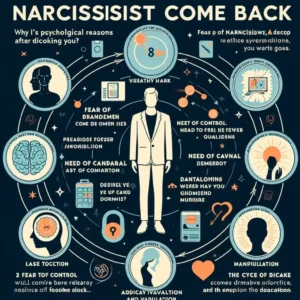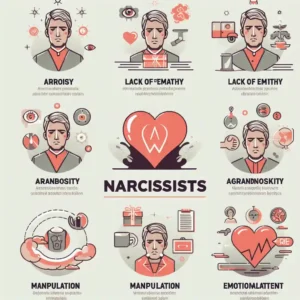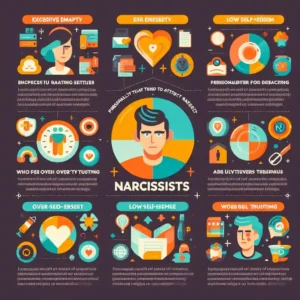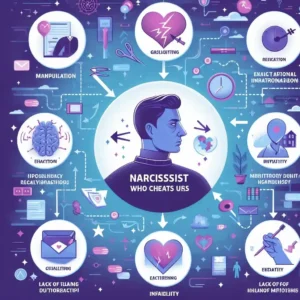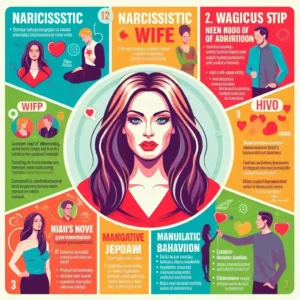You’ve finally found the courage to acknowledge the abuse and take the first step towards freedom. Now, you’re wondering how therapy can help you heal from the toxic grasp of a narcissist.
As you begin this journey, you’ll discover that therapy is more than just talking about your feelings – it’s a transformative process that empowers you to reclaim your identity, set boundaries, and develop coping mechanisms to overcome the emotional manipulation. But where do you start, and what can you expect from this process?
In a Nutshell

- Breaking the trauma bond is crucial in therapy for narcissistic abuse, involving recognition of emotional manipulation and gaslighting tactics.
- Reclaiming identity and self-worth through self-reflection, identifying values, and making authentic living choices is a vital step in recovery.
- Developing healthy coping mechanisms, such as emotional regulation and mindfulness practices, helps replace maladaptive strategies.
- Setting clear boundaries with abusers, communicating assertively, and establishing consequences is essential for protecting oneself from further harm.
Breaking the Trauma Bond
As you begin to acknowledge the emotional manipulation and gaslighting that characterized your relationship with a narcissist, you’ll need to confront the trauma bond that keeps you tethered to the abuse.
This toxic attachment is a result of the narcissist’s deliberate Gaslighting tactics, which made you question your own sanity and self-worth.
To break free, recognizing and addressing the Trauma triggers that may still be affecting you is vital.
These triggers can be subtle, such as a particular tone of voice or a specific phrase, but they can instantly transport you back to the traumatic experience.
As you work through your emotions, you’ll start to identify the ways in which the narcissist manipulated you.
You may recall instances where they denied previous agreements, made you feel guilty for their mistakes, or projected their own flaws onto you.
Acknowledge these Gaslighting tactics for what they’re – an attempt to control and dominate you.
By recognizing the tactics and confronting the Trauma triggers, you’ll begin to sever the trauma bond that has held you captive.
This is a pivotal step towards reclaiming your freedom and moving forward from the abuse.
Reclaiming Identity and Self-Worth
Having broken the trauma bond, you’re now poised to reclaim the most fundamental aspect of yourself: your identity and self-worth. This is a pivotal step in your healing journey, as narcissistic abuse often strips victims of their sense of self.
To start, engage in self-reflection exercises that help you reconnect with your values, beliefs, and passions. Ask yourself: What makes me happy? What do I stand for? What’re my non-negotiables? Take your time, and be patient with yourself as you rediscover who you’re outside of the toxic relationship.
As you reflect on your identity, you’ll begin to make authentic living choices that align with your true self. This might mean trying new hobbies, reconnecting with old friends, or pursuing new career opportunities.
Remember, you’re not bound by the opinions or expectations of others. You’re free to create a life that reflects your unique identity and values. By reclaiming your self-worth, you’ll regain confidence, self-trust, and a sense of purpose.
You’ll start to see yourself as a capable, deserving individual who’s worthy of love, respect, and happiness.
Developing Healthy Coping Mechanisms
You’ll need to develop healthy coping mechanisms to manage the emotional fallout of narcissistic abuse and replace the maladaptive strategies that may have helped you survive the toxic relationship.
As you break free from the cycle of abuse, crucially, learn new ways to regulate your emotions and respond to triggers.
Practice emotional regulation: Learn to recognize and label your emotions, then develop strategies to manage them in a healthy way. This might involve taking a few deep breaths, going for a walk, or engaging in a relaxing activity.
Cultivate mindfulness practices: Regular mindfulness exercises can help you stay present in the moment and reduce feelings of anxiety and stress. Try incorporating activities like meditation, yoga, or journaling into your daily routine.
Develop a self-care routine: Make time for activities that nourish your mind, body, and soul. This might include getting enough sleep, eating healthy foods, or engaging in hobbies that bring you joy.
Setting Boundaries With Abusers
Establishing clear boundaries with your abuser is a crucial step in protecting yourself from further emotional harm and maintaining a sense of control over your life. This involves setting limits on their behavior and communicating them assertively, without being aggressive or passive. Remember, you have the right to set boundaries, and it’s not selfish or mean to prioritize your own well-being.
When setting boundaries, be specific, direct, and firm. Instead of saying ‘stop being so critical,’ say ‘I feel hurt when you criticize me. Please refrain from doing so.’ Use ‘I’ statements to express your feelings and needs, and avoid blaming or attacking language. It’s also essential to set consequences for when your boundaries aren’t respected. For instance, ‘if you continue to yell at me, I’ll leave the conversation.”
Boundary setting isn’t about controlling others, but about taking care of yourself. By communicating your limits assertively, you’re showing that you value and respect yourself. This can be challenging, especially when dealing with an abuser who may resist or manipulate your boundaries. However, with practice and support, you can develop the skills and confidence to set healthy boundaries that protect and empower you.
Cultivating Self-Compassion and Empathy
As you work to break free from the toxic patterns of narcissistic abuse, having self-compassion and empathy is vital, recognizing that you did the best you could with the resources you’d at the time. Treating yourself with kindness, understanding, and patience is imperative, just as you’d a close friend. This doesn’t mean you’re excusing or justifying the abuse, but rather acknowledging your own humanity and vulnerability.
To cultivate self-compassion and empathy, try the following:
- Practice self-kindness practices, such as speaking to yourself in a gentle and supportive tone, or engaging in comforting activities like taking a warm bath or reading a favorite book.
- Embrace emotional validation, acknowledging and accepting your feelings as they arise, rather than trying to suppress or deny them.
Frequently Asked Questions
Can I Ever Truly Heal From Narcissistic Abuse?
Can you ever truly heal from the emotional turmoil that’s left you feeling drained and powerless? Yes, you can, through self-reflection and identifying emotional anchors that hold you back, empowering you to break free and reclaim your life.
How Do I Deal With Feelings of Guilt and Shame?
‘You’re stuck in self-blame patterns, but breaking free is crucial to recognize that guilt and shame are lies. Practice emotional validation by acknowledging your feelings, then gently reframe them with compassion, reminding yourself that you did the best you could.’
Will I Ever Be Able to Trust Others Again?
You wonder if you’ll ever trust others again, fearing the vulnerability that comes with it. Building walls around your heart may feel safer, but learning boundaries will empower you to trust yourself, eventually leading to healthy trust in others.
Can Therapy Help Me Forgive My Abuser?
You wonder if you can forgive your abuser, but crucially, you must recognize that forgiveness is a personal journey with its own timeline. Therapy can guide you towards accountability, helping you process emotions and release the burden of resentment.
Is It Possible to Co-Parent With a Narcissist Safely?
When co-parenting with a narcissist, you’ll need to prioritize your own emotional safety. Set and maintain firm boundaries, and consider parallel parenting to minimize interactions, allowing you to focus on your child’s well-being without constant drama.







James Green is a seasoned psychologist specializing in narcissism and other personality and relationship issues. With a passion for helping others understand and navigate their own personality traits and relationships, James shares his insights and expertise on his blog, Personality Diaries. Connect with him on Pinterest and Instagram for regular updates and insights.


